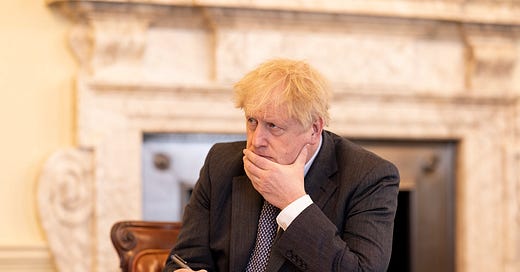Will Boris Johnson get a fair hearing?
Privileges committee will not let ex-PM publish his counsel’s legal advice
The committee of MPs investigating whether Boris Johnson misled the Commons over breaches of lockdown regulations has refused to allow the former prime minister to publish further advice given to him by his counsel, Lord Pannick KC. The advice appears to cast doubt on the procedures adopted by the Commons privileges committee.
Keep reading with a 7-day free trial
Subscribe to A Lawyer Writes to keep reading this post and get 7 days of free access to the full post archives.




